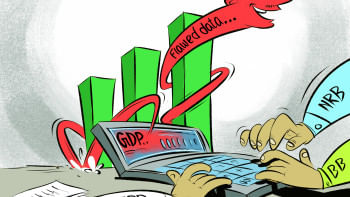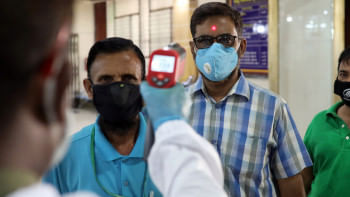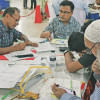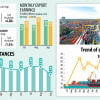We must undo the legacy of data manipulation

Bangladesh has long suffered from a lack of reliable official data thanks to the Awami League regime that often manipulated data to align with its political narratives and cover up unflattering truths. From economy to public health to education to energy, this trend was allegedly prevalent across key policy areas. While we are yet to learn of the full extent of the data manipulation or the damage caused by it, a report by Bonik Barta digs deep into the economic sector, highlighting how top officials were involved in such practices.
Reportedly, former finance minister AHM Mustafa Kamal, particularly during his tenure as planning minister in 2014-2019, played an active role in this regard. Under his leadership, an influential syndicate within the Bangladesh Bureau of Statistics (BBS) controlled data to manipulate key economic indicators such as growth and inflation, leading to misguided policies that failed to address the real economic conditions and ultimately hurt the country. For example, from 2015 to 2019, Bangladesh's growth was overstated by 3.5 percent, according to World Bank. Such fabrications allowed the government to show continuous growth in line with its Five-Year Plans.
The BBS also manipulated the Consumer Price Index (CPI) by increasing the number of items in the inflation basket from 420 to 749, thus diluting the impact of rising prices for essential goods and keeping inflation figures artificially low. The trend of data distortion was not limited to Kamal's period at the planning ministry, nor was BBS the only party complicit in it. In fact, many key state institutions were also similarly compromised, which shows how centrally planned this whole data propaganda campaign was.
It was only in July that we got to learn of a shocking discrepancy of $14 billion in our export data, which was apparently orchestrated by officials at the National Board of Revenue (NBR) and Export Promotion Bureau (EPB). Instances like this likely abound, even if those were not always reported. It is because of such statistical manipulations that the World Bank's Statistical Capacity Indicator showed a fall in Bangladesh's methodology score from 70 in 2014 to 30 in 2020. Against this backdrop, the importance of overhauling our entire data regime cannot be overstated. Accurate data are the backbone of effective policy-making, whereas manipulated data can lead to disastrous consequences, as it has in our case.
To address this problem, experts have made various recommendations including establishing an independent data commission to oversee the data evaluation processes; appointing seasoned statisticians to key positions in BBS instead of admin cadre officers; conducting regular external audits of official data to detect discrepancies; and implementing legal reforms to criminalise data manipulation. These steps have become essential to undo the damage done by the previous regime and put Bangladesh back on a path of progress.


 For all latest news, follow The Daily Star's Google News channel.
For all latest news, follow The Daily Star's Google News channel. 











Comments